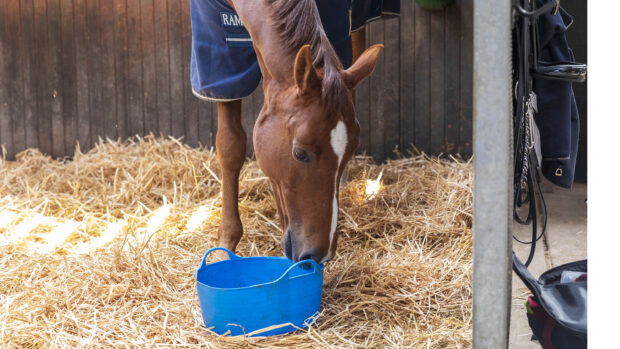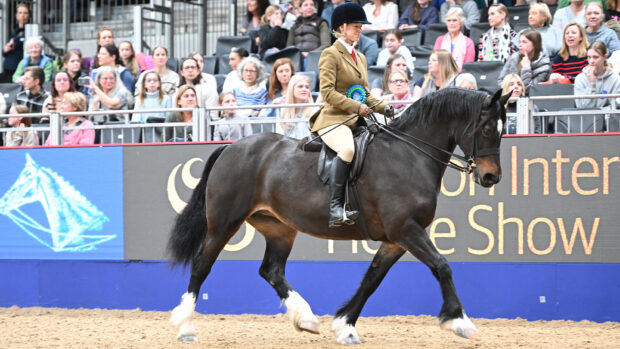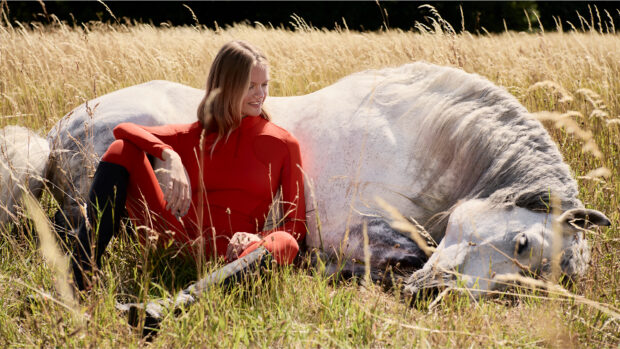Thanks to the Lassie films, the rough collie is one of the world’s most recognisable breeds. Collies – which can be either rough or smooth and are distinct in the UK as two separate pastoral breeds – are loyal, intelligent and athletic herding dogs. Like Lassie, this is a dog with brains, brawn and bravery. They were developed to guard and herd flocks of sheep in the Highlands of Scotland, but they also make great family companions, and excel in all sorts of canine sports, from dog agility to obedience, tracking and herding competitions.
Until 1994, rough and smooth collies could be interbred so that the same litter could feature both types of coat. However, since then the two have been categorised as different breeds. Back in the 1800s there was physical variation due to different bloodlines in the rough and smooth and there were separate classes for “sheepdogs rough” and “sheepdogs smooth”. However, nowadays the coat is the only notable difference.
From humble origins as sheepdogs, the collie found favour with Queen Victoria, who brought some down south from Balmoral to her other estates, such as Windsor.

The athletic smooth collie excels in sports such as dog agility
Smooth collie
The smooth collie is one of Britain’s vulnerable native breeds, while the rough collie is not. From early on, when the two breeds were still intertwined, the luxuriant coat of the rough has proved more popular, although Queen Victoria is said to have admired both versions and owned a smooth by the name of Sharp.
It is believed that the smooth originally had shorter legs, and was a stockier build than the rough. This provoked a cross with greyhound blood to give the smooth more elegance, and therefore today the breeds are virtually identical in physique.
Their coats are short and smooth, with a short, flat topcoat with a harsh feel, and a dense undercoat. They come in the same three colour combinations as the rough – blue merle, sable/white or tricolour.

The rough collie is renowned for is luxuriant, colourful coat
Rough collie
More recognisable and more popular than the smooth – arguably due to Lassie’s iconic status. They differ from the smooth essentially in the length and texture of their coats. The rough coat is very dense, with a straight and harsh outer coat, and a soft, furry and thick undercoat. They have profuse mane and frill and lots of feathering on the tail, forelegs and hindlegs above the hock, but a smooth mask and face.
The rough collie is known for this beautifully luxuriant and colourful coat, which flows as it runs (and needs a lot of grooming!).
Collie: fact file
Kennel Club breed group: pastoral
Size: medium
Daily exercise: at least an hour a day
Coat: short (smooth) or medium (rough), both shedding
Colours: blue merle, sable/white or tricolour
Lifespan: around 12 years
Bark: like many herding dogs, collies are typically vocal – they have a natural bark response to visual stimuli. They may bark out of excitement, stress, playfulness or separation anxiety. Due to their fantastic trainability, in good hands this should not develop into nuisance barking.
Distinctive features: the look of “Lassie” in the rough collie, but both breeds shout out “intelligence” simply by its alert, listening expression. Physically, they have an effortless, powerful stride; sweet, expressive and highly intelligent eyes. The long, flowing coat is distinctive only to the rough.
Temperament: friendly. Makes a great companion dog in a family, being happy, lively and good both with children and other dogs.
Things to consider: whether you have a rough or a smooth collie, be prepared for plenty of brushing. Even though the smooth coat is too short to mat, it is very dense. The rough, in particular, needs extensive grooming sessions with a one of the best dog brushes. And it’s worth investing in one of the best vacuum cleaners for dog owners as this is a breed that sheds profusely.
Training: these are smart dogs that tend to lap up training. They excel in agility and obedience competitions, being both quick learners, swift and agile.

Collie Training Vol 2 | Amazon
This book, which is part of a training trilogy, explains how to build up a unique relationship with your Collie, using training methods that are tailor-made for the breed.
You may also enjoy reading…

Guardians of the flock, herders and heelers – the 39 pastoral dog breeds with different looks, coats and missions

All about the Old English Sheepdog: the big shaggy dog with a peek-a-boo hairdo

10 British dog breeds everyone should own (at least one at some point in life)

Who’s a clever dog? The 7 smartest dog breeds in the world

All about the Border Collie: the canine brainbox with a workaholic attitude

All about Australian Shepherds

Subscribe to Horse & Hound magazine today – and enjoy unlimited website access all year round
Horse & Hound magazine, out every Thursday, is packed with all the latest news and reports, as well as interviews, specials, nostalgia, vet and training advice. Subscribe today and enjoy the magazine delivered to your door every week, plus unlimited website access and digital versions of the magazine dating back to September 2012.




